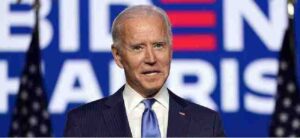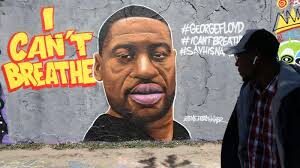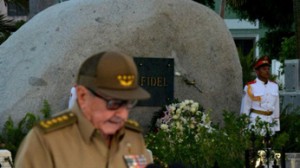The Italian Senate has voted to expel ex-Prime Minister Silvio Berlusconi from parliament with immediate effect over his conviction for tax fraud.
Berlusconi, who has dominated politics for 20 years, could now face arrest over other criminal cases as he has lost his immunity from prosecution. He told supporters in Rome it was a “day of mourning” for democracy. Ahead of the vote, he vowed to remain in politics to lead his Forza Italia in a “fight for the good of Italy”. A defiant Berlusconi told supporters gathered outside his Rome residence that “no political leader has suffered a persecution such as
I have lived through”. He said: “It is a bitter day, a day of mourning.” Berlusconi, 77, said his struggle would continue outside parliament. He said: “We must stay on the field, we must not despair if the leader of the centre-right is not a senator any more. There are leaders of other parties who are not parliamentarians.” The vote marks the end of a process which determines that Berlusconi cannot take part in any general election for six years. The BBC’s Alan Johnston in Rome says that Berlusconi has been flung out of parliament in the most humiliating of circumstances – effectively told that as a convicted felon he is no longer fit for public office. Our correspondent says that, while there is no question this is a major blow to the former PM’s political ambitions, the Berlusconi show is far from over – he will continue to lead Forza Italia outside parliament, a party that has considerable electoral support. Ineligible The debate in the Senate had been heated, with two rival senators nearly coming to blows. Manuela Ripetti of Berlusconi’s Forza Italia party shouted: “Your only aim is to eliminate Silvio Berlusconi!” No formal vote was held, but senators rejected a series of challenges from Berlusconi’s supporters. The Senate speaker then declared the three-time prime minister ineligible for a seat. “The conclusions of the committee on elections have been approved, abolishing the election of senator Silvio Berlusconi,” Speaker Pietro Grasso said. After the vote, Beppe Grillo, the leader of the anti-establishment 5-Star Movement, tweeted: “Berlusconi has been expelled by the Senate. One is out. Now we must evict all the others from the House.” Berlusconi was convicted of tax fraud in October 2012 over deals his firm Mediaset made to purchase TV rights to US films. The verdict was
upheld in August. He will have to serve a one-year sentence, probably under house arrest or by doing community service because of his age. He has also been convicted of paying for sex with an underage prostitute and of a breach of confidentiality over a police wiretap. He is appealing against both convictions. Earlier this year, Berlusconi tried to topple the coalition government of Enrico Letta. However, a group of Forza Italia dissidents led by Angelino Alfano broke away and Berlusconi backed down during a confidence vote when it was clear he would not get the support he needed. Mr Alfano opposed Berlusconi’s expulsion. “It is an ugly day for parliament and for Italy. Parliament has expelled a man millions had voted for,” Mr Alfano said.
Berlusconi had formally withdrawn Forza Italia from Mr Letta’s coalition on Tuesday, but the administration won another vote of confidence and passed the budget. Guglielmo Epifani, the general secretary of Mr Letta’s Democratic Party, which backed the expulsion, said: “The Senate did nothing more
than apply the law. It was the right thing to do, otherwise we would have had the law of the jungle.” – BBC News Syria conflict: Opposition chief to attend Geneva talks The head of Syria’s main opposition group has said he will attend planned peace talks in Geneva in January aimed at ending the civil war.
Ahmad Jarba said the Syrian National Coalition saw talks as a step towards “leadership transition”, meaning President Bashar al-Assad’s removal.
The Syrian government has also said it would attend but would not negotiate a handover of power. Rebel groups involved in the fighting have said they will not take part. Heavy clashes were reported on Thursday in eastern Damascus and Golan in the south-west. Activists reported six dead after a surface-to-surface missile fell on the jihadist-controlled northern city of Raqa overnight. More than 100,000 people have died in the violence since peaceful protests against Mr Assad began in March 2011. Almost nine million others have been driven from their homes, around two-fifths of Syria’s pre-war population. ‘Democratic transformation’ The Syrian National Coalition has previously set conditions for attending peace talks – including the setting up of humanitarian corridors and release of political prisoners. Mr Jarba said on Wednesday night that he would go to the conference, but reiterated that National Coalition rejected any future role for President Assad. “Our position on Geneva is clear – in our last meeting of the National
Coalition we presented a comprehensive and clear vision towards attending Geneva 2. This vision was agreed upon by the majority in the coalition,” he said. He said that “genuine democratic transformation” was needed, but that Mr Assad could not be part of it. “There is no way that the individual responsible for the destruction of the country [meaning Mr Assad] can be responsible for building the country,” he added. Earlier the Syrian government confirmed it would attend the talks, but dismissed the opposition demand that Mr Assad should play no role in any transition. The foreign ministry said its delegation to the talks would pursue “the Syrian people’s demands, first and foremost eliminating terrorism”. Officials routinely refer to all opposition in these terms. The UN, US and Russia have been trying for months to get both sides to agree a political solution to the conflict. UN chief Ban Ki-moon has said he expected both sides to come “with a clear understanding” that the goal of the talks was the full implementation of the Geneva Communique, issued after a meeting of the UN-backed Action Group for Syria in the Swiss city in June 2012. He reiterated that the peace talks would seek to establish a transitional government with full executive powers – as envisaged in the Geneva Communique. – BBC News




